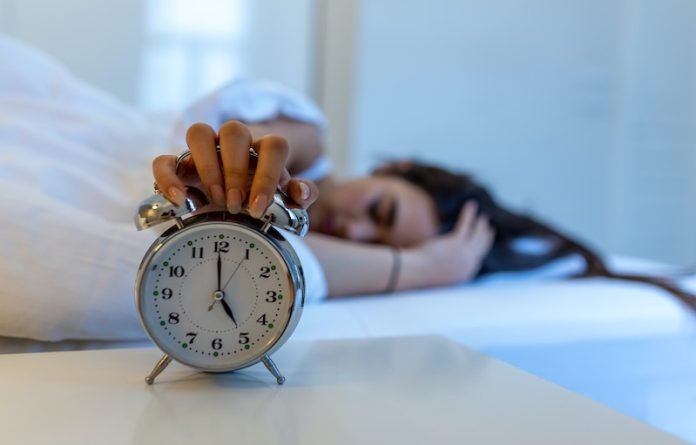
Brienne Miner, MD, MHS, assistant professor of medicine (geriatrics), loves to talk about sleep.
She first became interested in the subject when she noticed the prevalence of sleep problems among her older patients, and the detrimental impact of sleep deprivation.
Now, her passion lies in developing strategies to improve sleep—which can lead to better physical and mental functioning in older adults—and sharing her knowledge.
At a recent Being Well at Yale event in honor of Sleep Awareness Week, Miner spoke with the Yale community about the importance of sleep and offered the following tips.
Maintain a routine. “That means going to bed at the same time every night and getting out of bed at the same time every day,” Miner said. “That’s probably the single best thing you can do to improve your sleep.”
Stay active, even if you’re tired. Physical and social activity are cues for your body to be awake and make you more ready for sleep at night, Miner explained.
“The last thing we want you to do is to avoid activities because you’re not sleeping well,” she said. “Staying home and trying to get more sleep is actually counterproductive.”
Avoid napping. If you must take a nap, aim for 30 minutes or less before two in the afternoon, Miner advised, because naps decrease our homeostatic sleep drive, or pressure for sleep.
To initiate and maintain sleep at night, we want that homeostatic drive to build up during the day so that it’s very high by the time you get in bed that night, she said.
Minimize or eliminate alcohol, caffeine, and nicotine. “As we get older, our ability to metabolize these substances changes, and we can’t handle or process them the way we did in our thirties or forties,” Miner said.
While alcohol might help initiate sleep, it causes us to wake up in the middle of the night.
Feel free to try supplements but avoid medication. Some of Miner’s patients have seen modest improvement with valerian, chamomile, passionflower, or melatonin in small doses (3mg or less).
Over-the-counter medications can cause grogginess, confusion, and other adverse effects, according to Miner, and prescription drugs have been associated with cognitive impairment, increased risk for falls, and even death.
The gold-standard treatment for insomnia is cognitive behavioral therapy, a non-drug treatment that targets negative behaviors and has a high success rate, Miner said.
Written by Serena Crawford.
If you care about sleep, please read studies about herb that could help you sleep well at night, and these drugs could lower severity of sleep apnea by one third.
For more information about sleep, please see recent studies that coffee boosts your physical activity, cuts sleep, affects heartbeat, and results showing how to deal with “COVID-somnia” and sleep well at night.



